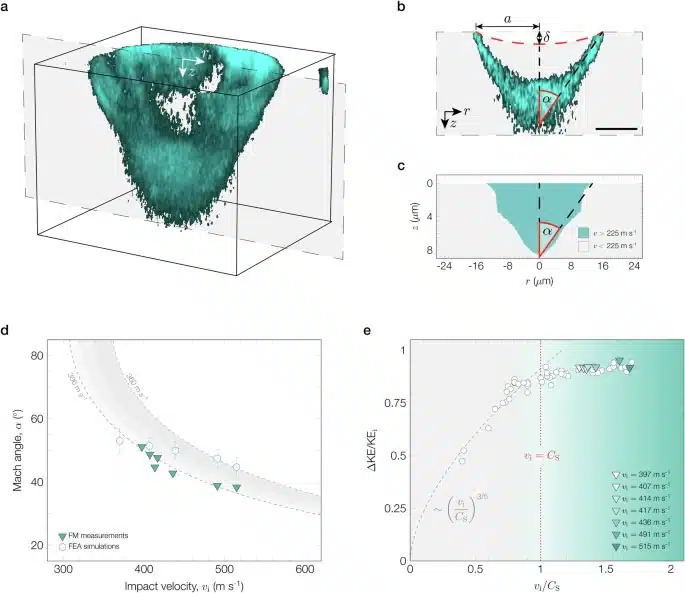The University of Southern Mississippi (USM), along with researchers from the National Institute of Standards and Technology (NIST), Arizona State University, Rensselaer Polytechnic Institute, and the U.S. Army Corps of Engineers have collaborated to develop a breakthrough in polymer materials that can visualize shockwaves during high-velocity impacts. These polymers can help researchers understand how materials absorb energy and respond to trauma-inducing conditions.
Published in Nature Communications, the research explains how a polymer containing mechanophore molecules illuminates under extreme force. Researchers were able to visually record the material’s response to high-velocity impacts through shockwaves. The new polymer technology offers a plethora of insights into connections with brain trauma, advanced manufacturing, and space exploration. Scientists can also help create high-quality materials for healthcare industries and military defense.
Three Southern Miss co-authors responsible for the breakthrough include Dr. Sarah Morgan of the School of Polymer Science and Engineering, Dr. Kyle Mehringer, a recent Southern Miss graduate, and Parth Vagholkar, a current doctoral research assistant with Dr. Morgan. All three researchers dedicated extensive time and effort to advancing the polymer research.
“This exciting research in understanding high-speed impact at the molecular level stems from our ongoing research collaboration with the US Army Engineer Research Center (ERDC) in Vicksburg. The research effort combines experimental and computational expertise to address important problems in military engineering and offers research support and internships for graduate and undergraduate student researchers,” said Morgan.
The Southern Miss School of Polymer Science and Engineering continues to be a nationally and internationally recognized school with achievements from faculty and students. Click here to learn more about the program and its ability to experience, engage, and explore.




